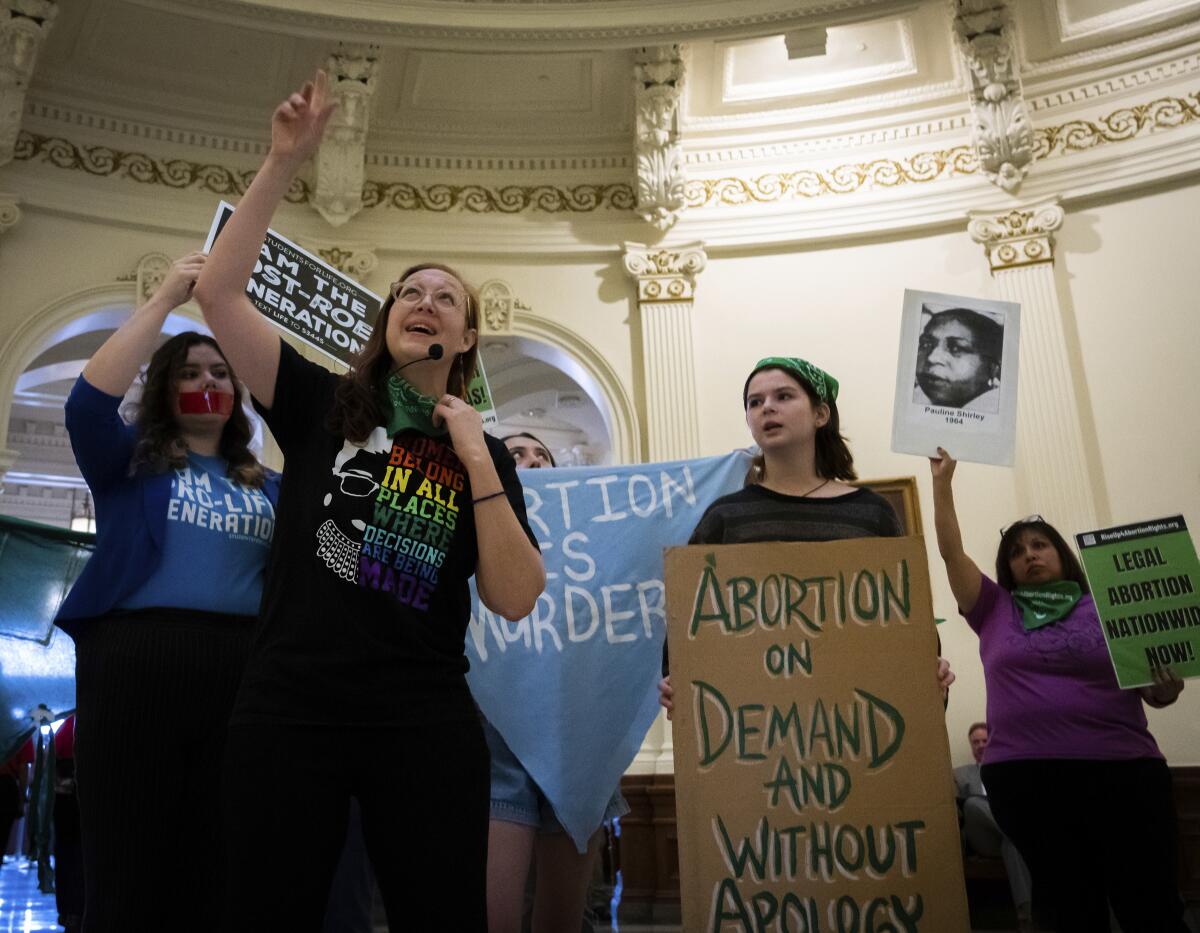Abortion pill hearing made public after judge’s actions raised transparency concerns

- Share via
WASHINGTON — A judge is set to hear arguments this week in a lawsuit that poses a threat to the nationwide availability of medication abortion. The upcoming hearing became public Monday after reporting raised concerns that the case with major implications could unfold with little public oversight.
The intensely watched lawsuit challenges the Food and Drug Administration’s approval of the drug mifepristone in 2000 and was filed by a group that helped challenge the landmark Roe vs. Wade decision, which the U.S. Supreme Court overturned last year. It’s been assigned to a Texas judge who was appointed by former President Trump and is known for conservative views.
The ruling could affect states regardless of whether abortion is legal and comes as medication accounts for over half of abortions. The effects of a ruling against the FDA could take years to play out.
The hearing set for Wednesday was first revealed by the Washington Post, which reported that U.S. District Judge Matthew Kacsmaryk would delay putting it on the public docket to minimize threats and possible protests. He also asked the attorneys not to publicly discuss details of the plans, the newspaper reported.
Abortion pills: A Trump-appointed conservative judge’s upcoming ruling could have the biggest effect in blue states like California. What to know.
There is a presumption of openness in federal court proceedings, meaning proceedings are open to the public except in rare exceptions, and transparency in the court system is a keystone of the American judicial system. Delaying public notice of a hearing is highly unusual because it would normally be quickly placed on the public court docket.
Many court hearings are scheduled weeks or months in advance and quickly added to the public docket.
Still, there appears to be no national policy or rules on hearing notification, and judges have a great deal of discretion over many aspects of how cases are run, according to Charles Hall, a spokesperson for the Administrative Office of the U.S Courts. The Northern District of Texas, where the case is being heard, does not have any local rules mandating deadlines for hearing notifications.
The court’s official webpage for Kacsmaryk indicates he’s typically inclined to openness and “heavily disfavor(s)” sealing information.
A coalition of media outlets filed a motion protesting the delayed notification, saying it would amount to an indirect closure of the courtroom. The case is being heard in Amarillo, a city in the Texas Panhandle that’s hours away from major cities.
The motion notes the judge has expressed concerns about security, but media lawyers argued the courthouse can be secured without closing the courtroom. The U.S. Marshals Service, which is responsible for federal judicial security, has long secured courtrooms in untold numbers of closely watched, emotionally charged and potentially dangerous cases.
“Courts are supposed to be open to the public, and only in extraordinary circumstances do you seal documents or hide a hearing,” said David Cohen, a law professor at Drexel University in Philadelphia. In this case, Cohen said, “it just doesn’t seem like there’s anything here that meets those requirements.”
The United States Department of Justice, which is representing the FDA, initially declined to provide even basic details about the high-profile hearing. That position raised questions about whether it is fulfilling a commitment by Atty. Gen. Merrick Garland and other senior officials that it would be transparent and accountable to the American public. The White House referred questions back to the Justice Department.
The admonition from the judge not to discuss the plans publicly meant confirmation could have risked his displeasure, though a contempt holding would be less likely, Cohen said.
More to Read
Sign up for Essential California
The most important California stories and recommendations in your inbox every morning.
You may occasionally receive promotional content from the Los Angeles Times.











